THINGS TO KNOW ABOUT YOUR SHIPMENT ASKING FOR A QUOTE OR PICKUP
- How many pieces/pallets
- Dimensions of pieces/pallets
- Total weight of shipment
- Description of shipment (what are you shipping)
- Value of your shipment
- What type of equipment do you need (flatbed, van, dock truck…)
- Do you have a dock? Does the receiver of the shipment have a dock? or a way to load and unload the freight without any special equipment (liftgate)
- Are any of the locations a residence, or a convention center?
BASIC SHIPPING PROCEDURES
Have the freight properly packaged; items need to be protected and secured. Boxed/crated and palletized shipments are optimal; secure the boxes/crates or items to the pallet with binding, strapping or shrink/stretch wrap. Labels must be placed on every piece or package. Be sure to include the total number of pieces that comprise your shipment, in case the pieces become separated from the pallet.
It is imperative that both you and your customer/receiver understand that if they receive the shipment, and sign for it in good condition, and there is damage or loss to the shipment, it will be extremely difficult to have any recourse against the carrier. The receiver MUST inspect the shipment prior to signing for it.
It is also suggested that you take pictures of your shipment before loading it onto the carrier’s truck, as well as alerting your receiver to do the same. If you are shipping truckloads, sealing the trailer is also a good way to ensure your freight is not loaded with anything else.
BILL OF LADING
You will need documentation to hand to the driver when he shows up to pickup your freight. This documentation is called a bill of lading. On the bill of lading you show the shipper address, the consignee (receiver) address, the piece count, the weight and the description of the shipment. This is also where you would add in any specific information, like liftgate delivery etc.…… THIS IS A LEGAL DOCUMENT for the transport of your goods to destination. Traffic Management, Inc can fill all of this information out and provide you with a document to give to the driver…..when you call in your shipment, ask that we provide a bill of lading for you. (You will need to make a copy of this bill of lading and have the driver sign both copies, one of which you will keep, one he will take with him)
CARRIER PICKUP
It is important to confirm that the name provided for you by Traffic Management on your bill of lading is the name the comes to pick up your freight on shipping day. It is also important to write the drivers name out on your copy of the bill of lading along with the truck and trailer number. There are companies out there that will re broker loads to carriers not setup with Traffic Management. We do a really good job of weeding those carriers out ahead of time, however we want to know if the carrier that shows up is not the carrier on the bill of lading.
ACCESSORIAL SERVICES
Accessorial Services are services that are performed outside of the normal pickup and delivery of freight from a dock to a dock.
These services include:
- Liftgate Service – A motorized platform affixed to the back of the truck that raises and lowers cargo between the ground and the truck. Maximum weight is 1500-2000 and footprint is 4’x6’.
- Inside Delivery – When a driver is required to go beyond the front door or loading dock to pick up or deliver a load rather than remaining in his/her truck or on the loading dock.
- Residential Delivery – An additional fee is imposed when picking up from or delivering to a residence. It also limits the carrier pool we have to choose from.
- Convention Center Deliveries – There are additional fees and regulations imposed on convention center deliveries, depending on what is required, and what convention center you are shipping to.
- Redelivery – A fee may be imposed if a carrier tried to deliver freight to a business that could not take the freight for any number of reasons.
- Reweigh – If the carrier suspects the weight is inaccurate, they have the right to re-weigh the shipment on a certified scale, potentially increasing your cost.

